#he is a young indoctrinated teenager and he deserves the chance to change
Explore tagged Tumblr posts
Text
buddy dawn cannot raise himself from the grave.
buddy dawn is not a chosen one.
buddy dawn is a child.
buddy dawn was manipulated by organized religion through no fault of his own, most likely since he was born.
buddy dawn had his throat slit by people he probably considered good friends.
buddy dawn is kristen applebees in a different—worse—life.
buddy dawn is dead, and there’s a good fucking chance helio won’t answer his questions.
#this episode was gut wrenching at that moment#like that’s genuinely a horrifying fate and i’m desperately hoping someone can raise him cause that’s not fair#he is a young indoctrinated teenager and he deserves the chance to change#fantasy high spoilers#dimension 20#fantasy high#fantasy high junior year#d20#fh#fhjy
4K notes
·
View notes
Note
Can you rank your fave CoD antagonists?
Hello there nonny, sorry for taking so long to reply and thank you for your ask ♥♥
Rank my favorite CoD antagonists? Sure, I can do that! There are several antagonists in the series, but I’ll only rank my top 3. Hope that is okay with you c:
3. Jonathan Irons
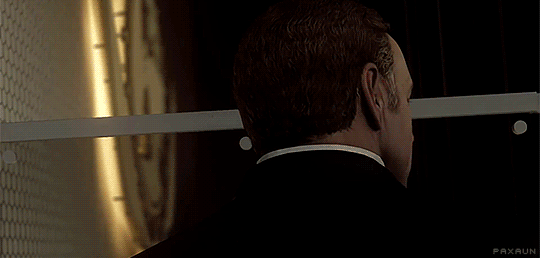
Original gif
Advanced Warfare may not be a series as popular as BO or MW, but I actually enjoyed the game and I also liked Irons. Honestly, I don’t think we’ve gotten that many antagonists that started out as our allies in CoD (at least I don’t remember any others atm), much any less an American antagonist, so that kinda made him stand out to me.
I’m not familiar with Kevin Spacey’s works, and I barely watched any trailers pre-release. So to see Irons go from someone who I believed genuinely wanted to make the world a better place, where every human being could live in peace and thrive, away from the pointless wars that governments waged, to someone who was willing to use any means necessary to achieve his goals, regardless of how many lives he had to sacrifice... well, that was something that hit me hard.
This man who gave my character a second chance, who treated me (Mitchell) as his son, who cleaned up after the colossal mess that others countries made, helped people from devastated war-zones rebuild their lives and gave them hope for the future, turned out to be someone I was forced to betray because of different viewpoints and philosophies. Despite everything, I think Irons had his heart in the right place, but his methods were ultimately terrible and in his messianic delusions he ended up doing more harm than good, so of course he had to be stopped.
And what I liked about him was that he didn’t start out as a bad man, he didn’t do all those things because of greed, and his characterization wasn’t that of a cartoonish villain. In a way I could find logic in his arguments, he made a few good points about the current state of the world and the inability (or indifference) of many politicians to solve the real problems of the people. But the root of it all lies in the loss of his son, his only child, to a government he no longer trusted nor had any faith in doing what was right. Despite having served in the military in his youth, Irons had grown disillusioned at the way the US handled domestic and international policy, and strongly disagreed with them— opposing the status quo in favor of change.
One could argue that serving in the military was entirely Will’s choice all along, and as a grown adult he knew what he was getting himself into. Still Irons couldn’t help but think that if that war had never happened, Will would still be alive. So that left him with a bitter taste, and it served as the catalyst behind his actions.
If nobody else would bother to do anything to actually solve the world’s problems, then he would be the savior to do it— whether they liked it or not. And he didn’t care what methods he had to use, how many had to die, or if he had to plunge the world into total chaos before he could ultimately end all wars and bring everlasting “peace” (perhaps one of the greatest ironies) as his dream seemed to be. Even at the cost of such a high price.
I don’t think Irons gets the credit he deserves.
2. Raúl Menéndez
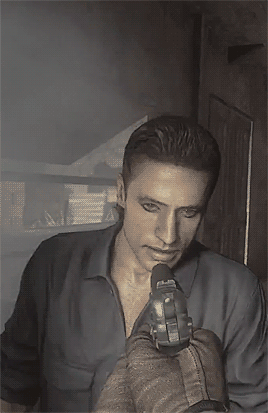
Original gifset
BO2 is one of my favorite games and Raúl is undoubtedly one of the most memorable antagonists in the series. Much like Irons, his actions were heavily motivated by the loss of a loved one but his life is also one sad story, so it’s no wonder he turned out the way he did. Not to justify him, but it’s not hard to understand what led him to do all those things.
From a very young age, his life was destroyed by the actions of Americans, from the horrors of the dictatorship in Nicaragua (in which the Contras were supported by the US); the crippling and disfigurement of his young sister Josefina, due to the greed of an American owner who burned down a warehouse in order to obtain 11,000$ through insurance fraud. After losing everything during an earthquake, and becoming homeless, Raúl and his father started over by selling drugs, successfully establishing a cartel that was so powerful in Nicaragua that they were equally feared and admired among the people.
But this status and power they had newly acquired concerned the US government, and it wasn't long before they sanctioned an assassination order on Raúl's father and sent the CIA in to kill him. Raúl observed it all, a teenager back then, and managed to escape thanks to his father's training. Though he could do nothing to stop it, nothing to save his father, this event marked him and further embittered him against the US and the West. And the last straw was the unfortunate death of Josefina, at the hands of Woods. He lost his sister, the only living relative he had, and his world fell apart. But if we think about it, Raúl was indirectly responsible for her death too, after the horrible torture he put Woods through in Angola. So the next time Woods saw Raúl he lost his mind and threw the grenade that tragically bounced into Josefina's bedroom and killed her.
So he spent all his life orchestrating a huge plan, a brilliant plan, that would shake the US from the very ground. And he was damn charismatic while executing it, earning the support and approval of billions of people all around the world— even from those who lived in US soil!— to begin a world revolution and end the dominance of capitalist nations that had subjugated other weaker countries, amassing huge riches through market economy and wars for resources, destroying lives and sinking many in poverty. And he also manipulates and pits two superpowers against each other... sending everyone to the brink of another world war, or a second cold war at best.
He wanted revenge on the US for playing with the lives of other people, for taking everything he loved away from him, by making them live in fear and destroying everything they had built. He wanted them to feel the same pain, to suffer the way he did. And he wouldn't rest until he achieved that because he had nothing to lose anymore.
Depending on the outcome, he can get revenge on Woods for Josefina, as well. And though we all like it when the "good" guys prevail and foil the plans of the villain, I think this particular ending had a much deeper and stronger emotional impact. The conversation they have at the end is something I didn't expect. Raúl has come to kill Woods but they're both in a place where the years have beaten them down with the weight of they’ve done and rather than an over the top scene, what we’re given is quite the opposite of that.
There’s no screaming, no heated argument between them, no dramatic lines. It’s just two old men who had to live with what they’ve done, and who have come to terms with the inevitability of that moment. Raúl slits Woods’s artery with Josefina’s pendant, and then he does something that surprised me: he closes Frank’s eyes, takes him off the wheelchair and lies his body on the bed. Something that is a huge contrast with what he did to Hudson many years ago... the savagery he used when killing him. For Raúl to behave that way with Woods, the man he considered to be his sister’s killer, it raises the question as to whether he still hated Woods after all these years, or maybe deep down he finally acknowledges that his actions (namely torturing Woods and killing his whole team) was the true motive that led to Josefina’s death.
The thing is, Raúl knows that he's to blame for what happened. It's also the reason why he burns himself alive in front of Josefina's grave. It’s because he has to pay for what he's done to her, too, and he chose to do it in probably the most horrible way possible but it didn’t matter to him. Nothing was more painful than living with the knowledge that his sister died because of what he did.
To him Josefina was the true innocent soul, who didn't deserve any of the suffering she went through.
1. Vladimir Makarov
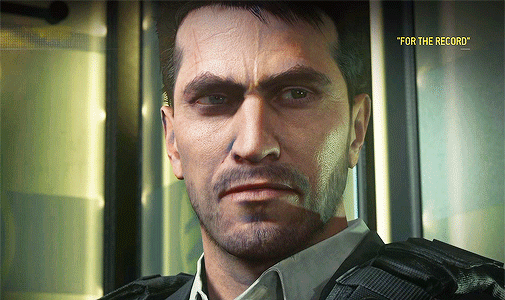
Original gifset
It’s no secret that Vladimir is my most favorite antagonist (and character) in all of Call of Duty.
Though his background and motives weren’t as well developed and explained as those of other antagonists in the series, his untold story (which you won’t find anywhere in the game, though you can deduce if you have a basic idea of the situation before and after the fall of the Soviet Union) perhaps says a lot more about him than one might expect.
There’s not a lot we know about his past other than the meager information that was provided in some loading cutscenes, but it’s reasonable to think that Vladimir wasn’t always the trashbag that we see in the games. He once was a young man with dreams of patriotism, who wanted the best for his country, who loved Russia with his soul, and who would do anything to protect her, because as a soldier that was what he was taught to do. As a soldier, that was his purpose in life and without that reason to drive him on, he had nothing left.
And however vague his backstory may seem to be, it gives you an idea that Vladimir in a way was a victim of a system that imparted a type of soft indoctrination on him, from a very young age (as many states do all around the world in some form or another, even those who hold democratic values), all the way to his education in the military academy and his brutal training in the special forces, that further cemented this undying love for Russia, maybe in a way that bordered brainwashing.
His true radicalization came after the fall of the Soviet Union with the loss of his homeland and the Soviet culture as he knew it, as well as Russia becoming weak and losing much of her power and influence across the world. Then came his deployment in Chechnya in 1994, where he lived the horrors of a war that most likely left him psychologically scarred after the experiences he had to go through. And when he returned home, he was kicked out of the armed forces under accusations of human rights violations during the First Chechen War. And they may be true, he probably did a lot of bad things there (under the illusion that he was serving his country for a higher cause), and sadly it’s something commonplace in many armed conflicts. I’m going to leave this short post here for some details on that.
When he returned from war, he didn’t receive any professional help or if he did, it didn’t work. He didn’t know how to cope, he ultimately was unable to adapt to a normal life, he became a misfit. He had lost his job, he had a stain in his career, and finding a decent way to get by was very difficult at the time when the country was in the middle of a political, social, and economic crisis.
He was in financial ruin, and it was hunger that pushed him to become a criminal (something that wasn’t uncommon for ex military men in 90s Russia). Not just that but also hatred for those in power as well as society as a whole, and what they represented: total decadence and the reason why Russia was falling apart with these “stupid” western conceptions about freedom that in his eyes did nothing but give leeway for debauchery and corruption, which he ultimately sought to “fix” by returning Russia to what it used to be (a god-fearing empire under the autocratic rule of a tsar that was likened to a father to all his subjects, and where religion was used as a resource to legitimize his power and as a moral regulator that maintained the social order).
He pretty much felt abandoned, betrayed by his government— a leadership that had done nothing but sink Russia deeper and deeper into ruin, destroying the values under which he was raised and turning people like him into cynical masses that had lost faith in everything and were adrift without any real purpose in life, no future to look forward to, completely disillusioned that the dreams they’d bought into, the promises they had been sold by the west, were nothing but lies.
He’s still a piece of garbage, we know that, but I also think that he’s gone through a lot of struggles and bad experiences in his youth that marked him and filled him with resentment. Everyone sees Vladimir as the puppet master of the storyline of MW, and we have to give him credit for that, but deep down he’s just a man who has been a slave to his own obsessions and ambitions, unable to free himself from the hatred that has poisoned his mind for years, which led him to commit so many atrocities and strip himself from any semblance of humanity— all for the sake of a higher cause, as he undoubtedly tried to justify his actions at the end of the day.
In conclusion, all three were marked by losses in one way or another, and saw themselves as men who had to take the hard path and do what had to be done. And it’s also curious that Call of Duty, while not a game with any deep meaning on the surface, almost seems like social commentary on how war ruins lives and how anyone can do horrible things if put through the wringer enough times. It’s like these stories are trying to say that bad circumstances can make bad men out of seemingly good people, who wouldn’t have done any of the evil they did if maybe things had been different.
And I think that’s what makes these characters so interesting.
#vladimir makarov#raul menendez#jonathan irons#call of duty#modern warfare#black ops#advanced warfare#i'm really sorry again#it took me a while to write this one!#but it's done at long last c:
49 notes
·
View notes
Text
For young men (Part 1)
In my latest lockdown induced depressive episode I have been meeting some new people online. They are all young, male, mostly heterosexual, very nice and extremely considerate. However, they also are often afraid becoming a burden, insecure in their appearance or social skills, and often struggling with mental health. Given this, they are also usually extremely afraid of never finding themselves having sex or getting into a meaningful relationship in the late stage neoliberal capitalist dystopia we find ourselves in. To be honest I didn’t understand them at first, especially their obsession with sex. But the more I am thinking about it, the more I realize that we are united in the same dynamic of seeing sex or love as magic verfication of... What?
Growing up, I used hookups as a way to prove to myself that I am worth something. I thought that my value was defined by men’s desire. I originally in writing this wanted to show my perspective from the other side of the same coin, but after realizing how much of an undertaking that would be, I decided to start with the two most common answers from men used as justification to why they think they won’t get laid. These are things I find will help these kinds of people out, but as a great thinker once said...
“I can’t mom you through this one, boys. You are on your own.” - Contrapoints
(I link songs I like through out btw, the underlined text are links you can click on)
Foreword: Social factors
The average age of first intercourse has been rising in the US. Teenagers have less sex than ever before. These changes will affect you. In teen movies and shows charakters often experiment with sexuality before the age of 18. Everything else is played as an abnormality. If we compare ourselves to this misrepresentation of teenage sexuality, of course we seem like the losers.
“The proportion of young people who have had sexual intercourse increases rapidly as they age through adolescence”. It’s very likely, at least from my view, that you are just going to grow out of the awkward zone of wanting intimacy but not getting it. Just like you grew out of other things, such as bad musical taste or that one gaudy outfit. Don’t stress over this one specifically either.
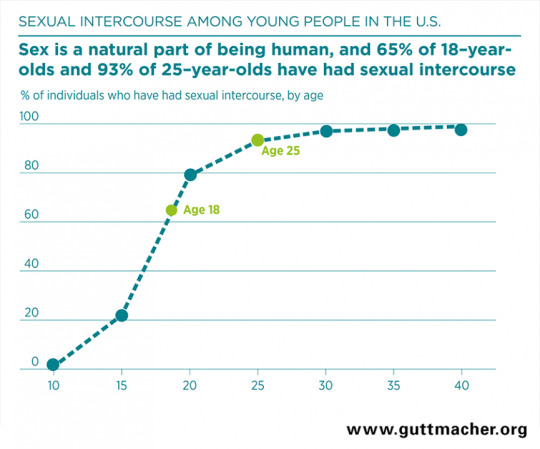
Adolescence is weird for all of us. Even if your first encounter is after college, let’s be real here: having such a good thing in your own place without your parents looming or having to share your room with a roommate you barely know is so much better anyway.
The Ugly fuck too
A common answer to my question why they think that they will never have sex is that they are “unattractive”. The implication being, that sex is the prize for looking a certain way.
But is it? We are so used to the perfect, porn-ready bodies in the media that we forget that the Ugly fuck too. We never see the foldes of fat and skin, never see acne warriors or moles, never see people who actually look like us.
In the movie “The Parasite”, there is a scene where the husband of Gook Moon-gwang, the former housekeeper, is implied to have sex. (the clip, starts at 3:00) It gave me weird feelings of discomfort, as the illusion so stereotypically found on the silver screen was not present. These two characters are not pretty. They look old. She is fat and he is a balding skeleton. They are not special, and that’s okay.
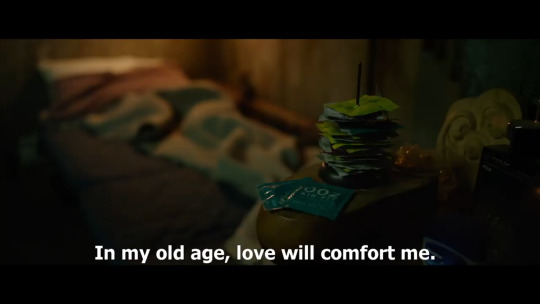
Being fuckable does not equal beauty. Being fuckable does not equal beauty. It was a terrifying thought initially for someone like me who defined their value over beauty & their beauty as being fuckable. It might also be a scary thought for someone who doesn’t think that they deserve love and intimacy because of their looks. I promise you that you still deserve love! Sex did not cure my problems with my appearance, or the fact that I based my self-esteem on the way I look. It will not make you feel normal. It will not make you feel better, prove your worth or even give you more self esteem in the long term beyond the initial rush of dopamine. It is not a caravan to fulfillment.
Beauty is a concept that is based on exclusion. Allow yourself to feel the pain of being excluded, of not reaching the impossible beauty standards and the disadvantages that come with it. Allow yourself to feel the fear of not being “man enough” and be happy in spite of it.
“Patriarchal masculinity teaches us to control our pain, but it can block us from experiencing the grief that is part of a full life. Chasing pleasure and controlling pain is patriarchal. Opening ourselves up to joy and grief is to be fully human.”
”Those of us in that skinny nerd category are especially prone to thinking that we aren’t “man enough.” [..] But the more I talked to men, the more convinced I became that almost all men at some point in their lives don’t feel man enough. Even the men I thought were the “real men” were scared.
That’s not surprising. Masculinity in patriarchy—that is, masculinity in a system of institutionalized male dominance—trains men to be competitive, in pursuit of conquest, which leads to routine confrontation, with the goal of always being in control of oneself and others. But no matter how intensely competitive one is, no matter how complete the conquest, no matter how many successful confrontations, and no matter how much one stays in control—men are haunted by the fear that they aren’t man enough, that they can never stop proving their masculinity.” - Robert Jensen
Stop comparing your appearance to other men’s. Start talking and bonding with them over your undoubtably shared insecurities rooted in society’s relentless toxic masculinity. Unlearning the things you’ve been indoctrinated into since conception is damn hard. I am still in the middle of it personally, but I promise you it is worth it. It will improve not only your relationships with other men, but also with yourself and that one girl you’re pining after.
There are a ton of resources targeted at women about self acceptance, but not many for men. Robert Jenson comes from a tradition of critical men’s groups. Even though I don’t agree with him on everything, he manages to scare most men (especially the kind I mentioned in the first paragraph) to their core, but also improves their lives drastically with his kindness and radical ideas. I implore you to look him up, and try your best to keep an open mind.

“A person who functions normally in a sick society is themselve sick.”
The other most common answer to the initial question was “being socially maladjusted”, implying that sex is something you earn by behaving a certain way. It is ingrained in the way we talk about love. “Deserving love” is the best example. Neither love nor sex is a product of work. Love and intimacy are a lot like sleep. It is a slow but unconscious process. You slowly work into it, with no idea of what comes next, and then, after an agonizingly long moment, you’re there. The fall is not often expected or easy, is always exhilarating, but never the product of conformity to anything except comfort with who you are.
I do acknowledge that social settings can be weird, existentially unsettling, and full of unseen complexities. This is especially true if you are neurodivergent and / or struggling with mental health. Being neurodivergent or struggling with mental health goes against the impossible, hegemonically masculine standard of always being in controll. It’s a common cause behind feelings of emasculation. Disregard that feeling, and remember that you deserve love, no matter how manly you are or are not, no matter how you behave.
Learning social settings are lot like learning to skate. In the beginning you will be covered in bruises, but with enough effort, you will be better at it. The chance of mistakes will get lower, but never zero. You will always have awkward situations, but that doesn’t mean that you are bad at them. It just means that you have room to improve still. Maybe consider getting lessons or joining a skate crew.
We tend to hyperfocus on the accidents. Think about how many nice conversations you had over the internet, text or otherwise. I ask you to value them. Value these positive experiences, value your friendships and acquaintances, value the people supporting you, online and offline. We tend to hyperfocus on meaningfull longterm friendships, just like we hyperfocus on love. Value your social enviroment, value someone who just made you feel ok for a moment. You are socially adapted, because you have a social enviroment you feel comfortable in, where you have relationships with people. The depth of a relationship is not messured by time, nor by physical touch. Being mindful of your feelings for the people around you can make you realize that you are less alone than you thought.
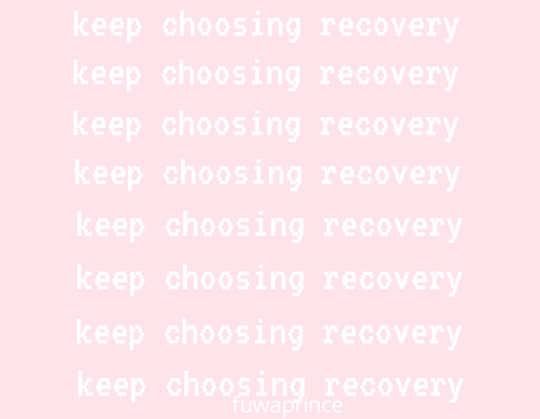
Some Tips
If you want to make friends additionally to that, here are some tips from someone, who is bad at social clues:
Join a group with a common interest or struggle: Book clubs, activist groups, selfhelp groups, they are great settings to meet new people and you already have a topic to talk about :)
If you feel save about it: Being open about your issues can help other people adapt to you and understand you better - especially in early on in relationships.
People sitting at the bar or smoking outside are generally more open for conversation
Don’t be afraid of getting rejected: They don’t reject you, when they reject a conversation with you. The reasons people don’t want to talk to you is very diverse. Stay respectful and polite.
Don’t expect to much: No one owes you a long conversation. A smalltalk is perfectly fine.
Learn to make compliments casually and learn to compliments that aren’t based on appearance.
Find a common ground (politically, a interest ect.) and talk about it
Take a improv class, seriously TAKE A IMPROV CLASS! (there are online ones, and sometimes it’s even free)
Here are some youtube videos by Anna Akana with more tips. (1) conversations, (2) how to be a better friend, (3) overthinking
Here are is a piece about being bad at relationship I liked.
Footnote: Trophies and muses
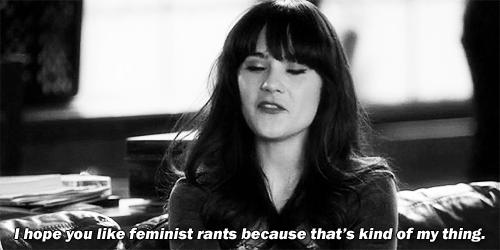
“We do not want to do the work of helping you to believe in your humanity. We cannot do it anymore. We have always tried. We have been repaid with systematic exploitation and systematic abuse. You are going to have to do this yourselves from now on and you know it.” - Andrea Dowkin
Behind the whole obsession with sex is often a distorted perception of women. Just remind yourself that women are human? Access to female bodies is not a human right. We are not trophies to push your ego. We are not there to inspire you or heal you. We are humans with agency. We desire love and being loved, just like everyone else.
I am tired, but I believe in your humanity...
xoxo,
aestheticritique
3 notes
·
View notes
Photo

PROFILE LOADED... 「HAN NOEUL」「SPD」「TWENTY-FOUR」
“Twenty-four-year-old S.W.A.T OFFICER. He works for the SEOUL POLICE DEPARTMENT.”
✘ THREAT LEVEL HIGH. PROCEED WITH EXTREME CAUTION...
[ BACKGROUND... ]
i. Early Childhood
「⏪ 1993:0」Noeul drew the short straw in the genetic lottery; born the illegitimate son of a gangster and a late-night bar hostess, he had to admit his life was a lot like skydiving — except the plane’s on fire and he’s got no parachute.
「⏪ 1997:4」Abandoning their respective jobs was never an option for Noeul’s parents even if they were responsible for a young child. If anything it meant that they had to work themselves beyond their means just to provide for him and give him the childhood they wished they could have had themselves.
「⏪ 1999:6」Noeul is too young, too naive, but is still taught to be alert and responsible beyond his years. Sometimes his mother doesn’t come home at night and on others his father goes missing for days. He might have had to live the majority of his young life with only himself for company, but Noeul is loved, so much more than he thinks. Though nothing like that makes sense to a six year old anyway.
「⏪ 2000:7」His father is mysteriously killed on the job five months shy of Noeul’s seventh birthday. All he remembers of the day is the two gruff-looking men talking to his mother over coffee, the heavy atmosphere and something real sinister about a lotus.
ii. School Years
「⏪ 2008:15」Noeul grows up looking just like his father, and that inherited physical appearance brands him as a criminal or at least a troublemaker on first impression. Tensions get to an all time high during his teenage years, where in the absence of a father figure he causes more trouble than he can deal with himself. Denying Coming to terms with his lineage, his repressed feelings and deep-seated insecurities manifest in self-destructive behavior and violent incidents at school.
「⏪ 2008:15」Being the sole provider for a troublesome teen is no easy task, especially with Noeul’s mother being so young. Yet she offers nothing less than compassion towards him and his friends, and it rubbed off on him in droves; as a result his heart slowly grew warmer because of her. Working multiple jobs to ensure Noeul is well provided for, she has always been more than willing to sacrifice her own health and wellness if it means giving him a fighting chance for a bright future. Noeul notices this, and for her sake learns to cook, clean the house and productively channel his teenage brooding effectively grooms himself into a paragon of household maintenence all by the time he’s in high school.
「⏪ 2010:17」The one time Noeul goes too far is the one time he almost gets himself expelled. It’s his final year and exam season is right around the corner when he accidentally breaks a classmate’s arm in a fight. His poor, poor mother has to drop everything, bail him out at school and beg for forgiveness so he doesn’t end up throwing away the future she worked so hard to give him. The eventual guilt that sets in drives him to want to do something, anything — if not to save himself, to save his mother who gave him everything when he deserved nothing.
iii. Police Academy and Training
「⏪ 2011:18」Noeul applies for the police academy after barely making it out of his college entrance exams. With help from his mother and an empathetic school counsellor, he finds himself pointed in the right direction when futhering his education had been something that never crossed his mind. Maybe this is what he’s cut out to do, maybe all this time, Noeul’s wanted to be a hero. After all he’s a simple-minded guy with a heart bigger than himself that kind of wants to make the world a better place. But he later learns that things just aren’t as simple as his conscience makes it out to be.
「⏪ 2013:20」You’d think Noeul’s rough edges would get sanded out by the harsh discipline dished out by the police academy, but you know what they say, you can keep the boy out of trouble but you can’t keep the trouble out of the boy. The years he’s spent in the academy and probation soon after are long, arduous and sometimes it keeps him up at night wondering how it’ll be worth it, but Noeul knows at the end of the day it’s gonna mean something. So he toughs it out, builds his physical/mental fortitude and waits.
「⏪ 2014:21」He doesn’t know how he did it, but Noeul scrapes by his short probationary period just enough and is officially transferred out to the the Seoul Police Department’s SWAT unit. Be it because of his skills, potential or physical qualifications, none of it mattered anymore because he finally made it.
「⏪ 2014:21」Preparations are made and Noeul finds himself relocating from his quiet home straight to the big city. He rents a shabby apartment twenty minutes away from the Seoul Police Department and the rest is history.
iv. Present Day
「⏩ 2017:24」Serving justice gives Noeul a sense of purpose, and what better way to do the right thing than to go to work, help people in need and put the bad guys behind bars right? Wrong. Noeul is a two-year-fresh off the boat rookie and acts the part. He’s got a good head over his shoulders, he does, but the way he does things and conducts himself just isn’t right. He’s ignorant of his superiors and sees the world though his eyes and his eyes only — and that causes more than his fair share of problems for both himself and the unit. More than once he’s put his coworkers in difficult and/or dangerous situations because of his erratic behavior since Noeul still, against all odds, struggles with moral convictions despite years of training and indoctrination. Once he’s fixated on what he believes is right, there’s no changing his mind; moral objectivity be damned. But that doesn’t mean he’s a bad person, he just has to dig a little deeper and look a little harder, and eventually he’ll find the grey in a world of solid blacks and whites.
[ BEHAVIOR... ]
Han Noeul is a twenty four year old SWAT officer working under the Seoul Metropolitan Police Agency. He tries too much, works too hard and wants to do the right thing by all means necessary. Because of this he sometimes compromises the safety of his coworkers by abandoning protocol and acting on his own volition. In his two and a half years working for the police department, he’s put his commanding officers in their fair share of hot water with his impulsive, often self-centered actions in the field.
Noeul’s got a temper and a mean-streak, but once he mellows out, he can be the goofiest, chummiest guy in the world. He’s the type who will go all out of his way to help people, even if he’s just met them, or if the stakes are high and he’ll gain nothing from it. He gets caught up in the excitement of the moment and acts before he gets the chance to think — That’s because Noeul isn’t known for holding back; he gives more than he has and loves with a bleeding heart, always thinking very little of himself.
However, Noeul isn’t smart about his bouts of heroism and has a tendency to intervene without getting the whole picture — and then he’s liable to just make things worse. His predictable heroism also makes him particularly prone to manipulation, especially if the person he’s dealing with is cunning enough to use the very ideals he believes in against him.
0 notes